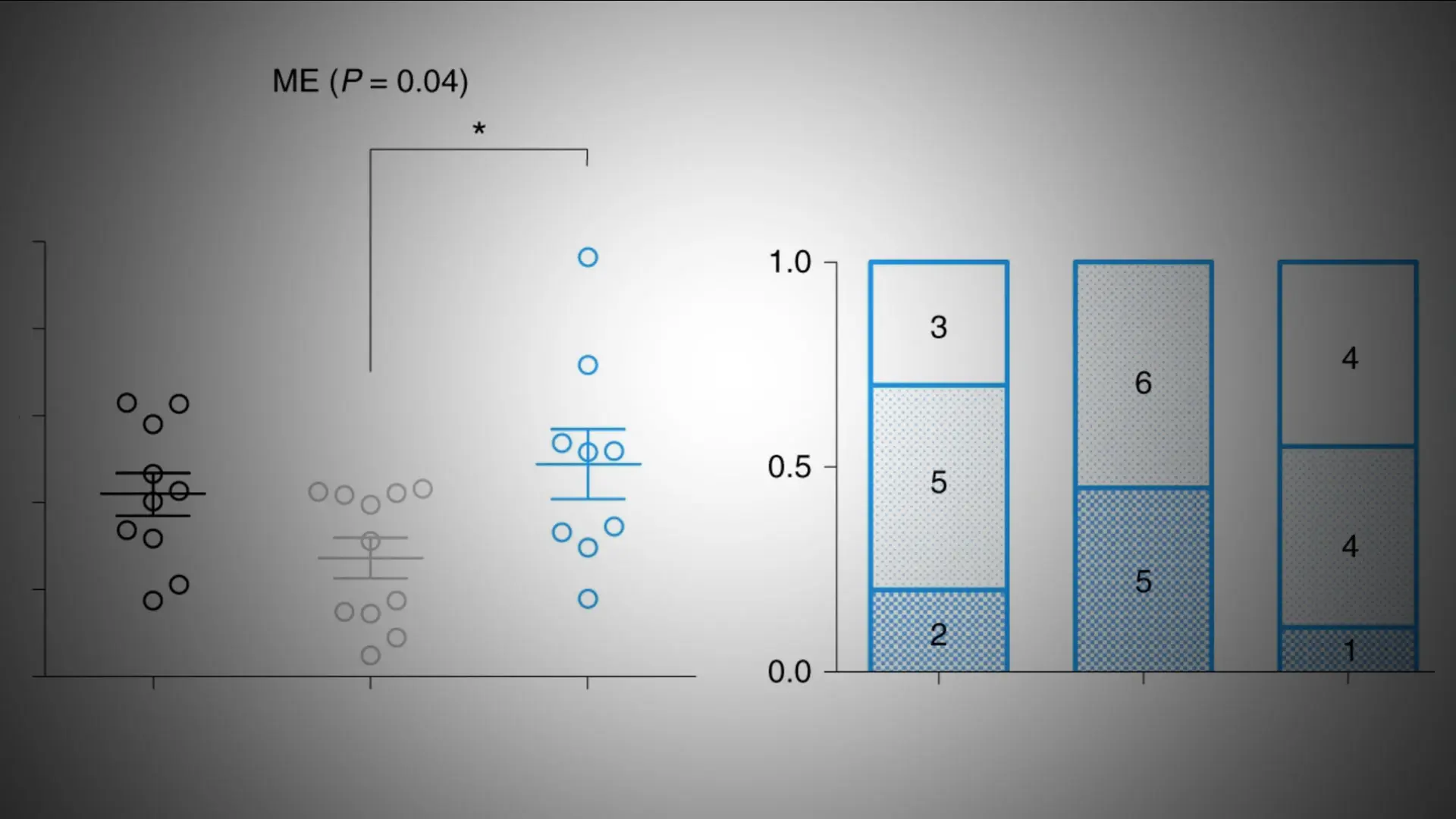Scientists Discover an Epigenetic Mechanism Contributing to Lifelong Stress Susceptibility
March 15, 2021, Nature Neuroscience; Lead Author, MD/PhD candidate Hope Kronman, PhD; and Senior Author Eric J. Nestler, MD, PhD; Press Release
An epigenetic modification that occurs in a major cell type in the brain’s reward circuitry controls how stress early in life increases susceptibility to additional stress in adulthood, researchers at the Icahn School of Medicine at Mount Sinai have learned. The team also reported that a small-molecule inhibitor of the enzyme responsible for this modification, currently being developed as an anticancer drug, was able to reverse increased vulnerability to lifelong stress in animal models.
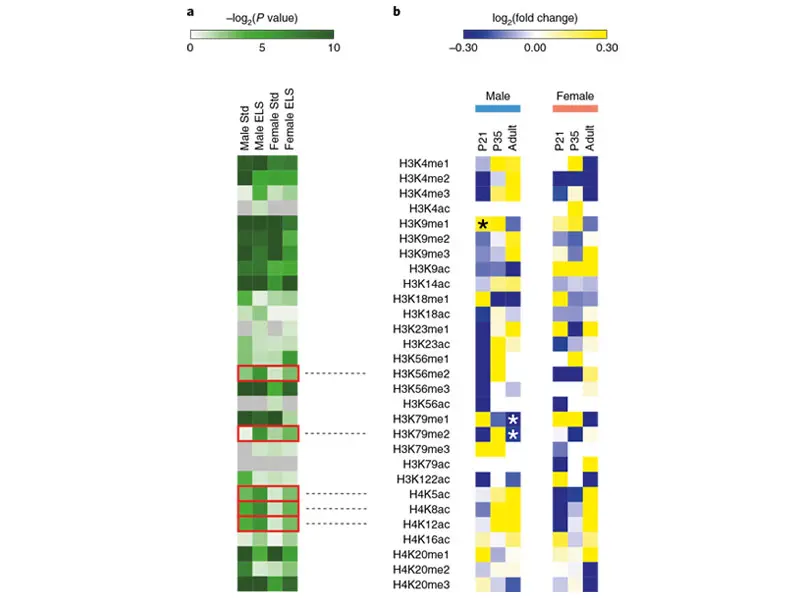
Figure 1, from study. Histone modifications after ELS point to persistent epigenetic changes.
Researchers Identify Brain Ion Channel as New Approach to Treating Depression
Study published March 3, 2021, The American Journal of Psychiatry; Co-authors James Murrough, MD, PhD; and Ming-Hu Han, PhD; Press Release
Researchers identified a drug, based on earlier investigations in animal models, that works against depression by a completely different mechanism from existing treatments. Their study showed that ezogabine (also known as retigabine), a drug that opens the KCNQ2/3 type of potassium channels in the brain, is associated with significant improvements in depressive symptoms and anhedonia in patients with depression. Ezogabine was approved by the U.S. Food and Drug Administration in 2011 as an anticonvulsant for epilepsy treatment but had not been previously studied in depression.
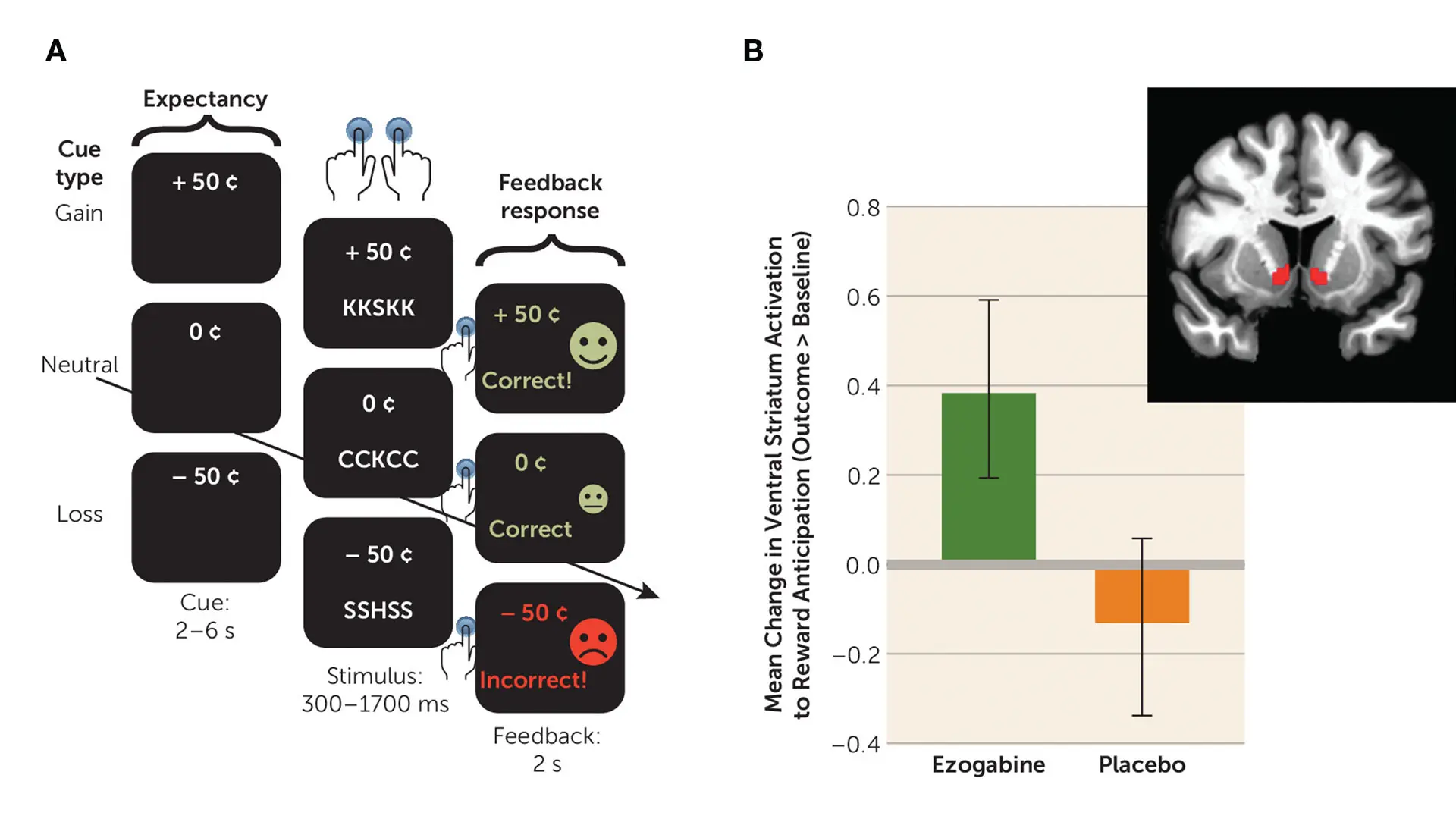
Figure 1, Panels a and b, from study. Effect of treatment with ezogabine compared with placebo on activation of the ventral striatum in response to reward anticipation in patients with depression and anhedonia during the incentive flanker task.
Researchers Uncover Neural Pathway Critical to Correcting Behavioral Errors Relevant to Many Psychiatric Disorders
Study published February 19, 2021, in Neuron; Senior author Hirofumi Morishita, MD, PhD; and Kevin J. Norman, PhD candidate; Press Release
The team identified a neural pathway originating in the frontal cortex through which the brain detects errors and guides subsequent behavioral improvement. This process, called cognitive control, is frequently dysregulated in a wide range of psychiatric disorders. Findings also suggest that neurostimulation of this brain pathway could provide an important mechanism for attention adjustments following behavioral errors.
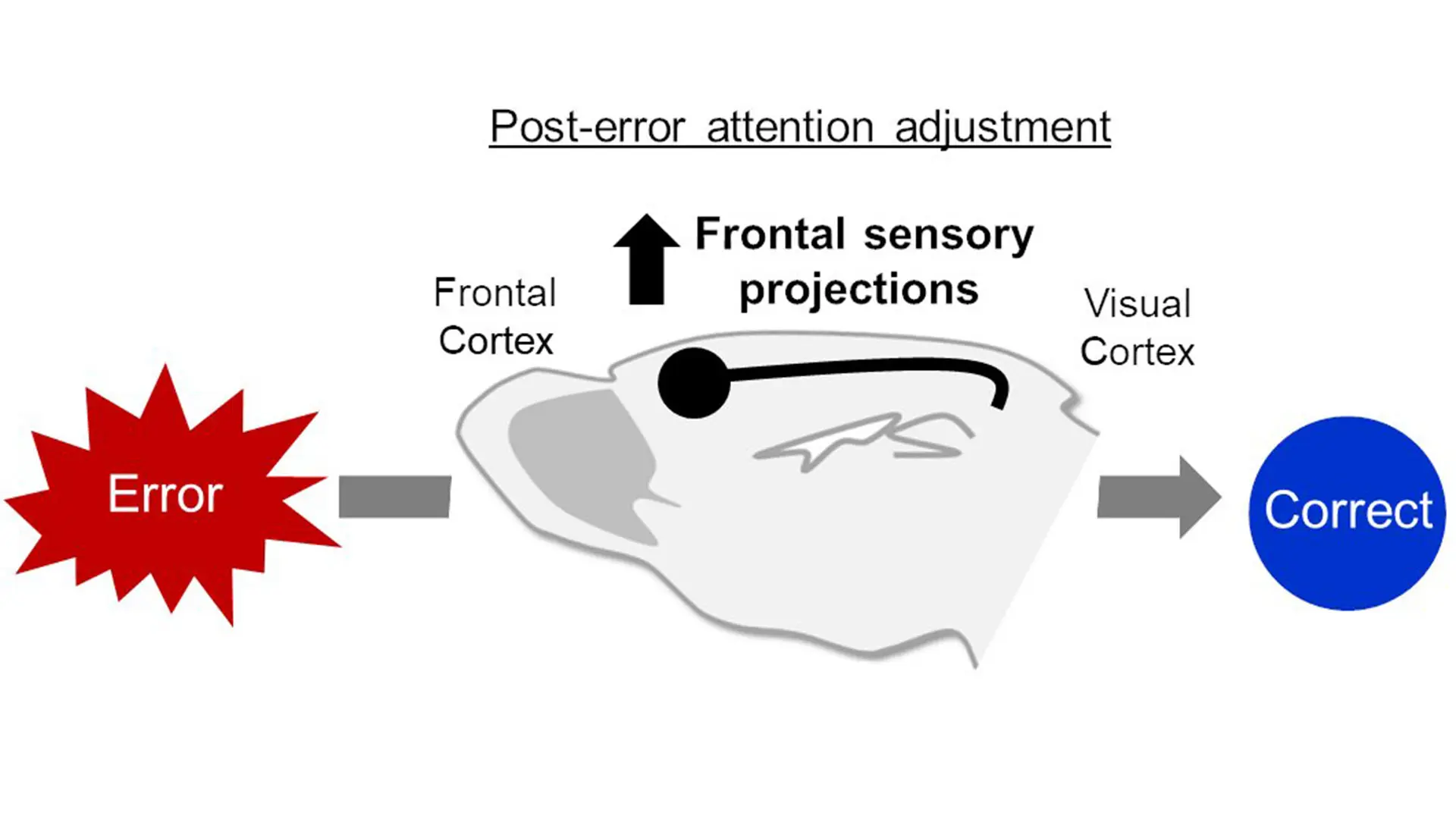
In mice, anterior cingulate neurons projecting to visual cortex causally link error monitoring and attentional adjustment, two fundamental components of cognitive control systems.
Three Molecular Subtypes Of Alzheimer’s Disease (AD) Identified and Characterized
Study published January 6, 2021, in Science Advances; Author Bin Zhang, PhD; Press Release
Researchers analyzed RNA-sequencing data of more than 1,500 samples across five brain regions from hundreds of deceased patients with Alzheimer’s disease (AD) and normal controls, and identified three major molecular subtypes of AD. These AD subtypes were independent of age and disease stage, and were replicated across multiple brain regions in two cohort studies. These subtypes correspond to different combinations of multiple
dysregulated biological pathways leading to brain degeneration. (Tau-containing neurofibrillary tangles and amyloid-beta plaque, two neuropathological hallmarks of AD, are significantly increased in only certain subtypes.)
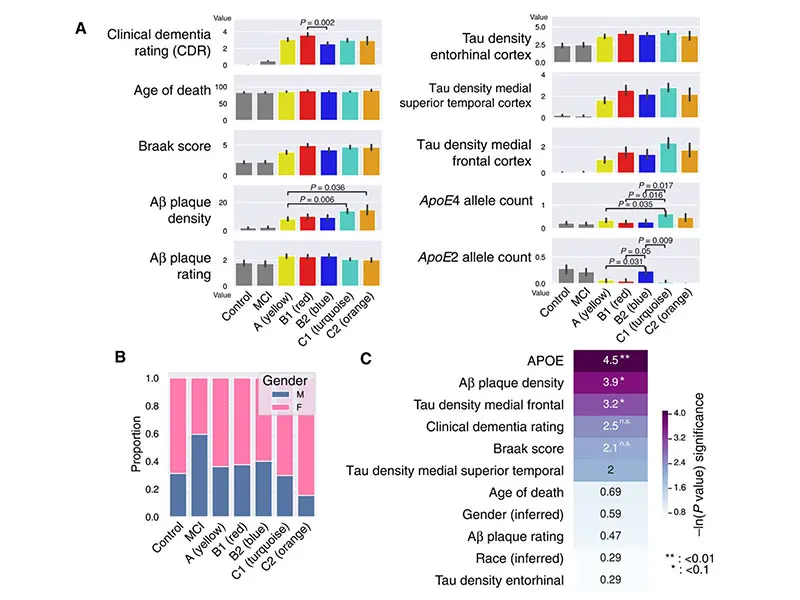
Figure 2 from study. Mean values of several clinical and pathologic traits across AD subtypes.
Society for Neuroscience Recognizes Two Outstanding Scientists
Ashley Lepack, PhD, a former neuroscience doctoral student in the Mount Sinai laboratory of Ian Maze, PhD, received the Nemko Prize in Cellular and Molecular Neuroscience, which recognizes the top PhD thesis that advanced the understanding of molecular, genetic, or cellular mechanisms underlying higher brain function and cognition, awarded by the Society for Neuroscience (SfN), the world’s largest organization focused on the brain and nervous system.
Yasmin Hurd, PhD, received The Mike Salpeter Lifetime Achievement Award from SfN, which recognizes neuroscientists with outstanding achievements in research who have significantly promoted the professional advancement of women in neuroscience. Dr. Hurd has made groundbreaking advances in the understanding of how drugs of abuse alter the brain, via epigenetic and cellular mechanisms, to cause addiction.
Featured
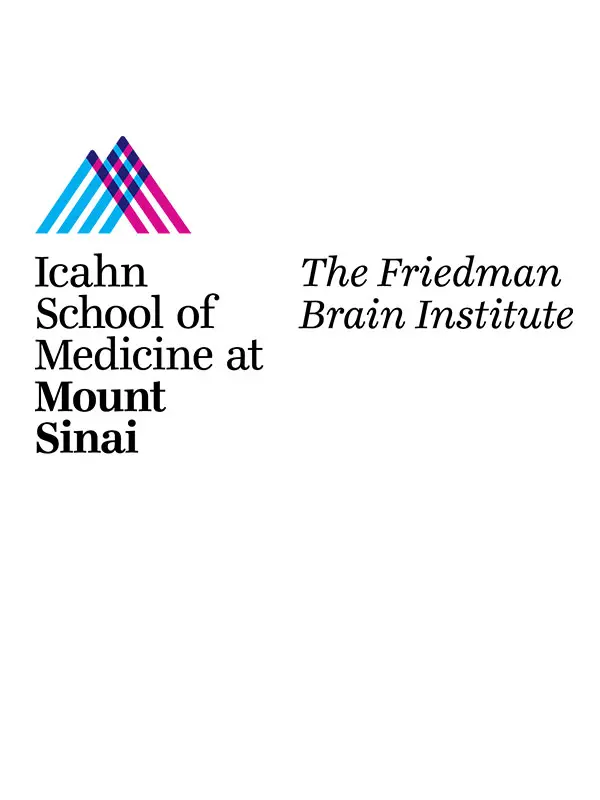
The Friedman Brain Institute
News Briefs
